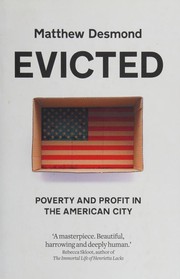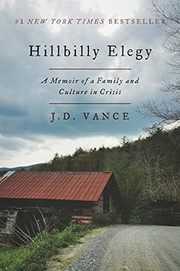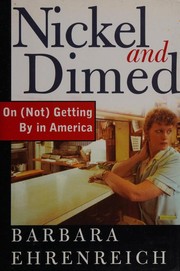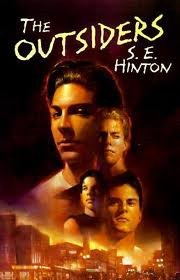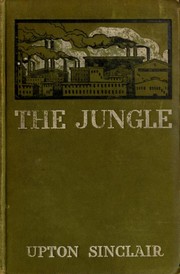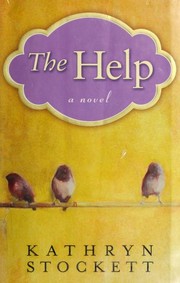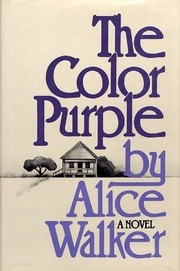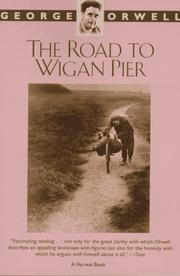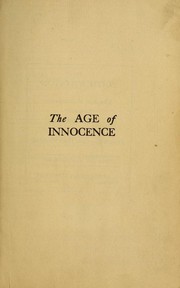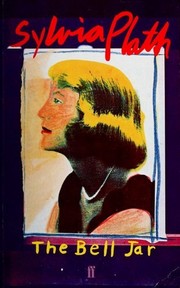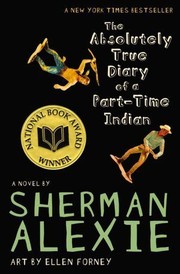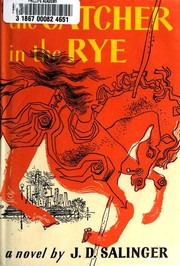Are you looking for a thought-provoking and insightful book on social class? Whether you want to explore the impact of social hierarchy on individuals or delve into the complexities of economic disparities, the following list of the 20 best social class books is sure to broaden your understanding and spark meaningful conversations. From classic literature to contemporary non-fiction, these books offer diverse perspectives on the dynamics of social class and its influence on society. Let’s dive into the fascinating world of social class through these captivating reads.
Contents
- 1 20 Best Books About Social Class
- 2 Evicted: Poverty and Profit in the American City
- 3 The Great Gatsby
- 4 Hillbilly Elegy: A Memoir of a Family and Culture in Crisis
- 5 Nickel and Dimed: On (Not) Getting By in America
- 6 The Outsiders
- 7 The Jungle
- 8 White Trash: The 400-Year Untold History of Class in America
- 9 The Help
- 10 The Grapes of Wrath
- 11 The Other Wes Moore: One Name, Two Fates
- 12 The Color Purple
- 13 The Road to Wigan Pier
- 14 Educated: A Memoir
- 15 The Glass Castle: A Memoir
- 16 The Age of Innocence
- 17 The Kite Runner
- 18 The House on Mango Street
- 19 The Bell Jar
- 20 The Absolutely True Diary of a Part-Time Indian
- 21 The Catcher in the Rye
- 22 Conclusion
- 23
- 24 Unveiling the Best 2012 Election Books in this 2024 Update
- 25 Best Books About Seal Team 6. 2024 Edition
- 26 Top 20 Best Books on Philosophy:2024 Edition
20 Best Books About Social Class
Evicted: Poverty and Profit in the American City
by Matthew Desmond
Evicted: Poverty and Profit in the American City by Matthew Desmond is a compelling book about social class that delves into the lives of low-income families in Milwaukee as they struggle to find and keep affordable housing. Through in-depth research and vivid storytelling, Desmond shines a light on the devastating cycle of poverty and eviction that plagues these communities. He uncovers the harsh realities of landlords, tenants, and the impact of eviction on families, bringing to the forefront the intersection of poverty, housing, and social inequality. This eye-opening book about social class offers a powerful and empathetic portrayal of the struggles faced by those living on the margins of society. Desmond’s work is a profound exploration of poverty and profit in America’s cities, making it a must-read for anyone interested in understanding the complexities of social class.
The Great Gatsby
by F. Scott Fitzgerald
The Great Gatsby, written by F. Scott Fitzgerald, is a classic novel that delves into the complexities of social hierarchy and the pursuit of the American Dream. Set in the 1920s, the story follows the enigmatic Jay Gatsby, who is deeply in love with Daisy Buchanan, a woman from a wealthy and elite social circle. Through Gatsby’s lavish parties, decadent lifestyle, and obsession with Daisy, the book explores themes of wealth, power, and the inherent limitations of social mobility. The novel offers a poignant commentary on the hollowness of the American Dream and the disillusionment that accompanies the pursuit of status and wealth. Fitzgerald’s vivid prose and compelling characters make The Great Gatsby a timeless social class book that continues to resonate with readers today.
Hillbilly Elegy: A Memoir of a Family and Culture in Crisis
by J.D. Vance
Hillbilly Elegy: A Memoir of a Family and Culture in Crisis by J.D. Vance is a compelling book about social class that delves into the author’s personal experiences growing up in a working-class Appalachian family. Through vivid storytelling, Vance paints a vivid picture of the challenges and complexities faced by individuals and families in the Rust Belt region. He provides a raw and honest portrayal of the struggles, values, and cultural dynamics that shape the lives of those living in poverty and grappling with the effects of intergenerational trauma. This book on social class offers readers an intimate look at the impact of economic hardship and social inequality on individuals and communities, making it a thought-provoking and insightful read for anyone interested in understanding the complexities of the American working class.
Nickel and Dimed: On (Not) Getting By in America
by Barbara Ehrenreich
Nickel and Dimed: On (Not) Getting By in America is a thought-provoking book on social class by Barbara Ehrenreich. In this eye-opening work, Ehrenreich immerses herself in the world of low-wage work, taking on a series of minimum-wage jobs to gain insight into the struggles faced by America’s working poor. Through her experiences as a waitress, house cleaner, and retail worker, she shines a light on the harsh realities of living on the margins of society, exposing the challenges of making ends meet and the dehumanizing nature of low-paying jobs. Ehrenreich’s powerful firsthand account offers a poignant and compelling exploration of the economic inequalities that perpetuate the cycle of poverty, making this a must-read for anyone interested in understanding the complexities of social class in America.
The Outsiders
by S.E. Hinton
The Outsiders by S.E. Hinton is a compelling book about social class that follows the lives of two rival teenage gangs, the Greasers and the Socs, in 1960s Tulsa, Oklahoma. The story is narrated by Ponyboy Curtis, a Greaser who finds himself at the center of a violent conflict with the wealthier Socs. Through Ponyboy’s eyes, the novel explores themes of friendship, loyalty, and the impact of social class on identity and relationships. Hinton’s vivid portrayal of the harsh realities faced by the Greasers and their struggles against prejudice and stereotypes makes this social class book a timeless classic that continues to resonate with readers of all ages.
The Jungle
by Upton Sinclair
The Jungle by Upton Sinclair is a powerful and eye-opening book about social class in America. Set in the early 20th century, it follows the struggles of an immigrant family as they face the harsh realities of working-class life in Chicago’s meatpacking industry. The novel vividly depicts the exploitation and dehumanization of workers, the squalid living conditions, and the corruption and greed of the capitalist system. Through the protagonist’s experiences, Sinclair exposes the harsh realities of the working class and the stark divide between the wealthy elite and the impoverished laborers. The Jungle is a poignant and thought-provoking social class book that sheds light on the inequalities and injustices faced by the lower class, making it a vital read for anyone interested in the history of labor rights and social reform.
White Trash: The 400-Year Untold History of Class in America
by Nancy Isenberg
White Trash: The 400-Year Untold History of Class in America by Nancy Isenberg is a thought-provoking book on social class that delves into the often overlooked history of the lower class in America. Isenberg uncovers the deep-rooted prejudices and stereotypes surrounding the “white trash” population and sheds light on the social and economic factors that have perpetuated their marginalization throughout history. With meticulous research and compelling storytelling, Isenberg challenges the traditional narrative of American history and offers a fresh perspective on the complex dynamics of social class in the United States. This eye-opening book about social class is a must-read for anyone interested in understanding the intricate layers of American society and the enduring impact of class on the nation’s history.
The Help
by Kathryn Stockett
The Help by Kathryn Stockett is a compelling book about social class that delves into the lives of African American maids and their wealthy white employers in 1960s Mississippi. The story is told through the perspectives of three women, two maids and a young white woman, as they navigate the complexities of race, privilege, and power dynamics in a deeply segregated society. The novel explores themes of inequality, discrimination, and the courage it takes to challenge the status quo. Stockett’s rich and vivid storytelling brings to life the struggles and triumphs of the characters, making it a thought-provoking and emotional read. The Help is a poignant social class book that sheds light on the realities of the time and the resilience of those who dared to defy the norms.
The Grapes of Wrath
by John Steinbeck
The Grapes of Wrath by John Steinbeck is a powerful book about social class and the struggles of the working class during the Great Depression. The story follows the Joad family as they are forced to leave their home and travel to California in search of a better life. Along the way, they face poverty, discrimination, and exploitation by the wealthy landowners. Steinbeck’s vivid descriptions and compelling characters shed light on the harsh realities of social inequality and the resilience of the human spirit. The novel is a timeless portrayal of the impact of economic disparity and the fight for justice in the face of adversity. It is a thought-provoking and emotionally gripping social class book that continues to resonate with readers today.
The Other Wes Moore: One Name, Two Fates
by Wes Moore
The Other Wes Moore: One Name, Two Fates is a captivating exploration of the impact of social class on two individuals who share the same name. Author Wes Moore tells the story of his own life, growing up in a struggling neighborhood, while also delving into the life of another Wes Moore, who grew up in similar circumstances but ended up on a drastically different path, ultimately landing in prison. Through this thought-provoking narrative, Moore delves into the complexities of social class, examining how it can shape the opportunities and challenges that individuals face. The book offers a powerful examination of the ways in which social class can influence the trajectory of one’s life, and serves as a compelling reminder of the importance of understanding and addressing the systemic inequalities that can impact individuals from a young age.
The Color Purple
by Alice Walker
The Color Purple by Alice Walker is a powerful and moving novel that delves into the complexities of social hierarchy and discrimination. Set in the early 20th century, the book follows the life of Celie, an African American woman who faces oppression and abuse due to her gender and race. Through Celie’s poignant letters to God, the reader is exposed to the harsh realities of social inequality and the struggle for empowerment. The novel explores themes of racism, sexism, and classism, and ultimately celebrates the resilience and strength of the human spirit in the face of adversity. The Color Purple is a thought-provoking and emotionally charged social class book that sheds light on the struggles and triumphs of marginalized individuals.
The Road to Wigan Pier
by George Orwell
The Road to Wigan Pier is a powerful exploration of social class in 1930s Britain. George Orwell vividly describes the harsh living conditions of the working class in industrial towns, shedding light on the poverty and inequality they faced. The first part of the book is a gripping firsthand account of Orwell’s experiences living among the working class, while the second part delves into the deeper roots of social class, offering a thought-provoking analysis of the societal factors that perpetuate inequality. Orwell’s unflinching portrayal of the struggles of the working class and his sharp critique of the upper class make this book an important and enduring commentary on social injustice. The Road to Wigan Pier remains a compelling and relevant read for anyone interested in understanding the complexities of social hierarchy and economic disparity.
Educated: A Memoir
by Tara Westover
Educated: A Memoir by Tara Westover is a captivating book about social class and the power of education to transcend one’s upbringing. Westover recounts her remarkable journey from growing up in a strict, isolated family in rural Idaho to eventually earning a PhD from Cambridge University. Her memoir offers a poignant exploration of the impact of social class on family dynamics, personal identity, and the pursuit of knowledge. Through her experiences, she sheds light on the complexities of navigating between different social classes and the transformative potential of education. This compelling and thought-provoking memoir challenges readers to consider the influence of social class on individual lives and the possibilities that arise when one dares to defy the limitations imposed by their upbringing.
The Glass Castle: A Memoir
by Jeannette Walls
The Glass Castle is a captivating memoir by Jeannette Walls that delves into the author’s turbulent upbringing in a dysfunctional family. Walls recounts her experiences growing up in poverty, her parents’ unconventional and often neglectful parenting, and the challenges she faced as a result of her family’s socioeconomic status. The memoir provides a raw and honest portrayal of the complexities of family dynamics, resilience, and the impact of poverty on individuals. Through vivid storytelling, Walls sheds light on the intricacies of social class and the struggles faced by those living on the margins of society. The Glass Castle is a poignant and thought-provoking book about social class that offers a powerful exploration of resilience and the human spirit.
The Age of Innocence
by Edith Wharton
The Age of Innocence, a classic novel by Edith Wharton, is a captivating book about social class and the constraints it imposes on individuals. Set in the high society of 1870s New York, the story follows Newland Archer, a young lawyer torn between his duty to marry into the wealthy upper class and his love for a woman considered unsuitable by their standards. Wharton skillfully portrays the intricacies of societal expectations, the suffocating rules of etiquette, and the facade of respectability that conceals hidden desires and forbidden passions. Through vivid characters and beautiful prose, the novel delves into the complexities of privilege, tradition, and the sacrifices required to maintain one’s status in a rigid social hierarchy. The Age of Innocence is a thought-provoking and timeless exploration of the human condition within the confines of society’s expectations.
The Kite Runner
by Khaled Hosseini
The Kite Runner, a compelling novel by Khaled Hosseini, delves into the intricate web of social hierarchy in Afghanistan. The story follows Amir, a young boy from the privileged upper class, and Hassan, his loyal friend from the lower socioeconomic strata. Their friendship is tested by jealousy, betrayal, and the rigid societal expectations of their respective social standings. As the backdrop of the narrative shifts from pre-Soviet invasion Afghanistan to the Taliban-ruled era, the novel provides a poignant exploration of the impact of social class on personal relationships and societal dynamics. With themes of privilege, inequality, and redemption, The Kite Runner offers a thought-provoking examination of the complexities of social stratification and its far-reaching consequences.
The House on Mango Street
by Sandra Cisneros
The House on Mango Street by Sandra Cisneros is a captivating coming-of-age novel that explores the experiences of a young Latina girl growing up in a working-class neighborhood in Chicago. Through a series of vignettes, the protagonist, Esperanza, shares her observations and reflections on the challenges and complexities of her community and her own identity. Cisneros skillfully weaves together themes of family, culture, gender, and the struggles of the working class, creating a rich tapestry of voices and perspectives. The book offers a poignant and intimate portrayal of the realities of life in a lower-income neighborhood, making it a compelling read for anyone interested in the dynamics of social class and the resilience of the human spirit.
The Bell Jar
by Sylvia Plath
The Bell Jar, written by Sylvia Plath, is a captivating and thought-provoking novel that delves into the complexities of societal expectations and mental illness. The story follows Esther Greenwood, a young woman who struggles with her identity, aspirations, and the pressures of conforming to societal norms in the 1950s. Plath’s vivid and evocative writing style draws readers into Esther’s world as she navigates the challenges of relationships, career aspirations, and her own mental health. The novel offers a poignant exploration of the effects of societal expectations and the constraints of gender roles, making it a compelling book about social class and the impact it can have on an individual’s mental well-being.
The Absolutely True Diary of a Part-Time Indian
by Sherman Alexie
The Absolutely True Diary of a Part-Time Indian is a poignant and humorous coming-of-age novel by Sherman Alexie. The book follows the story of Junior, a young Native American boy who decides to leave his reservation to attend an all-white high school. Through Junior’s candid and witty diary entries, readers get an intimate look into his struggles with poverty, identity, and fitting into a different social sphere. This book delves into the complexities of social hierarchy, discrimination, and the pursuit of a better life, making it a compelling book about social class. Alexie’s writing is raw, honest, and filled with heart, offering a powerful exploration of the impact of social class on individual lives.
The Catcher in the Rye
by J.D. Salinger
The Catcher in the Rye, written by J.D. Salinger, is a gripping novel that delves into the complexities of social class and societal expectations. The protagonist, Holden Caulfield, takes readers on a journey through his experiences with privilege, conformity, and rebellion. Set in the 1950s, the book explores the challenges and pressures of navigating the social hierarchy and the impact it has on individual identity and morality. Through Holden’s rebellious nature and his disdain for the superficiality of the upper class, Salinger offers a poignant commentary on the complexities of social stratification and the struggles of finding one’s place in the world. The Catcher in the Rye is a timeless and thought-provoking social class book that continues to resonate with readers today.
Conclusion
Exploring the complexities of Social Class, these 20 books about social class offer a diverse and thought-provoking collection of perspectives. From insightful memoirs to gripping fiction, these titles shed light on the impact of social inequality on individuals and society. Whether you’re interested in exploring the nuances of privilege, poverty, or mobility, these books provide a rich and enlightening journey through the intricacies of social class.
Which Social Class book is best?
The best book on Social Class can vary with personal preference, but three widely recommended titles are:
- Evicted: Poverty and Profit in the American City by Matthew Desmond,
- The Great Gatsby by F. Scott Fitzgerald,
- Hillbilly Elegy: A Memoir of a Family and Culture in Crisis by J.D. Vance.
Each offers valuable insights and could be a great starting point.
What are the best books to learn about Social Class?
For those looking to learn about Social Class, there is a wealth of literature that can provide a comprehensive understanding of the subject. Some of the most highly recommended books include:
- Evicted: Poverty and Profit in the American City by Matthew Desmond,
- The Great Gatsby by F. Scott Fitzgerald,
- Hillbilly Elegy: A Memoir of a Family and Culture in Crisis by J.D. Vance,
- Nickel and Dimed: On (Not) Getting By in America by Barbara Ehrenreich,
- The Outsiders by S.E. Hinton,
- The Jungle by Upton Sinclair,
- White Trash: The 400-Year Untold History of Class in America by Nancy Isenberg,
- The Help by Kathryn Stockett,
- The Grapes of Wrath by John Steinbeck,
- The Other Wes Moore: One Name, Two Fates by Wes Moore
These books offer a range of perspectives on Social Class, covering various aspects and approaches to the subject.
What are the best books on Social Class?
The best books on Social Class include:
- Evicted: Poverty and Profit in the American City by Matthew Desmond,
- The Great Gatsby by F. Scott Fitzgerald,
- The Color Purple by Alice Walker,
- The Road to Wigan Pier by George Orwell,
- The Help by Kathryn Stockett,
- The Jungle by Upton Sinclair.
Each offers unique insights into the subject. While these books on the topic of Social Class are highly regarded, it’s important to note that any list of ‘best’ books is subjective and reflects a range of opinions.
What are the best Social Class books of all time?
Choosing the best Social Class books of all time can vary depending on who you ask, but seven titles that are often celebrated include
- Evicted: Poverty and Profit in the American City by Matthew Desmond,
- The Great Gatsby by F. Scott Fitzgerald,
- The Outsiders by S.E. Hinton,
- The Help by Kathryn Stockett,
- The Other Wes Moore: One Name, Two Fates by Wes Moore,
- The Road to Wigan Pier by George Orwell,
- and The Color Purple by Alice Walker.
Each of these books has made a significant impact in the field of Social Class and continues to be influential today.

